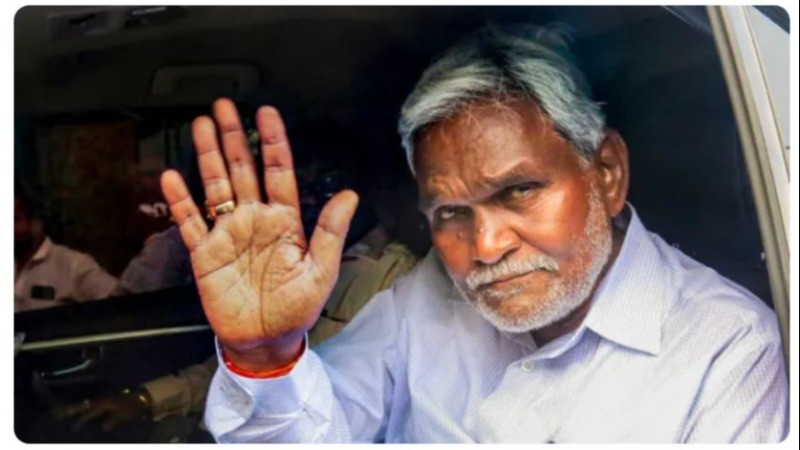
The political scene in Jharkhand has long been influenced by the Soren family, whose hold on power has become increasingly controversial. Recent events have highlighted deep-seated nepotism and internal power struggles within the Jharkhand Mukti Morcha (JMM), raising questions about whether the Sorens are more focused on preserving their legacy than on the state’s welfare.
Champai Soren, a key figure in Jharkhand’s statehood movement, has recently been sidelined, bringing these issues into sharp focus. For over forty years, Champai Soren was a prominent leader in the Jharkhand State Formation Andolan, contributing significantly alongside other leaders such as the late Shri Binod Bihari Mahto. Despite his crucial role, Champai Soren’s political career has faced setbacks, culminating in his marginalization within the JMM.
During a challenging period, Champai briefly led the coalition government in Jharkhand, striving to stabilize it and implement welfare programs. However, his leadership ended abruptly when Hemant Soren, Shibu Soren’s son, returned from jail and reclaimed control. This move has been perceived as a betrayal by many, especially given Champai’s efforts to hold the party together during difficult times. Speculation has arisen, particularly in the Kolhan region, questioning whether Champai’s sidelining is due to his status as a Soren who is not Shibu’s son.
The Sorens' governance approach has increasingly been criticized for prioritizing personal interests over Jharkhand’s development. Hemant Soren’s return to power was marked by a swift consolidation of control, disregarding the alliances that supported the party in his absence. This sense of entitlement has alienated many within the JMM and among Jharkhand’s populace, exacerbating dissatisfaction.
Corruption allegations against both Shibu and Hemant Soren have further eroded trust. Accusations of graft and nepotism have sullied the JMM’s reputation, leading many to believe that the Sorens are more focused on maintaining power and wealth than on genuinely serving Jharkhand’s people.
The sidelining of leaders like Champai Soren reflects broader issues within the JMM, particularly the monopolization of power by the Soren family. While Shibu Soren is often credited as the face of the Jharkhand movement, it’s important to remember that statehood was a collective effort. Leaders like Shri Binod Bihari Mahto played crucial roles in the movement’s success.
Over time, the narrative has been dominated by the Soren family, transforming the JMM into a family-run entity. This has marginalized other key figures and reduced the party’s internal diversity, concentrating power within a single family.
As Jharkhand’s citizens witness these ongoing power struggles, frustration is growing. There is a palpable sense of betrayal among those who supported the Sorens, and a rising demand for leadership that prioritizes the state’s development over personal gain. The repeated sidelining of capable leaders like Champai Soren, combined with persistent corruption and nepotism, raises doubts about the Sorens’ suitability to lead Jharkhand into the future.
The Sorens' clinging to power at all costs is proving detrimental to both their party and the state. As Jharkhand’s people grow weary of the same old power games, the question remains: Will the Sorens prioritize the state’s interests above their own, or will their legacy be marked by missed opportunities and unfulfilled promises?
More To Read: